16 Fascinating Insights Into The German Shepherd’s Unique Traits
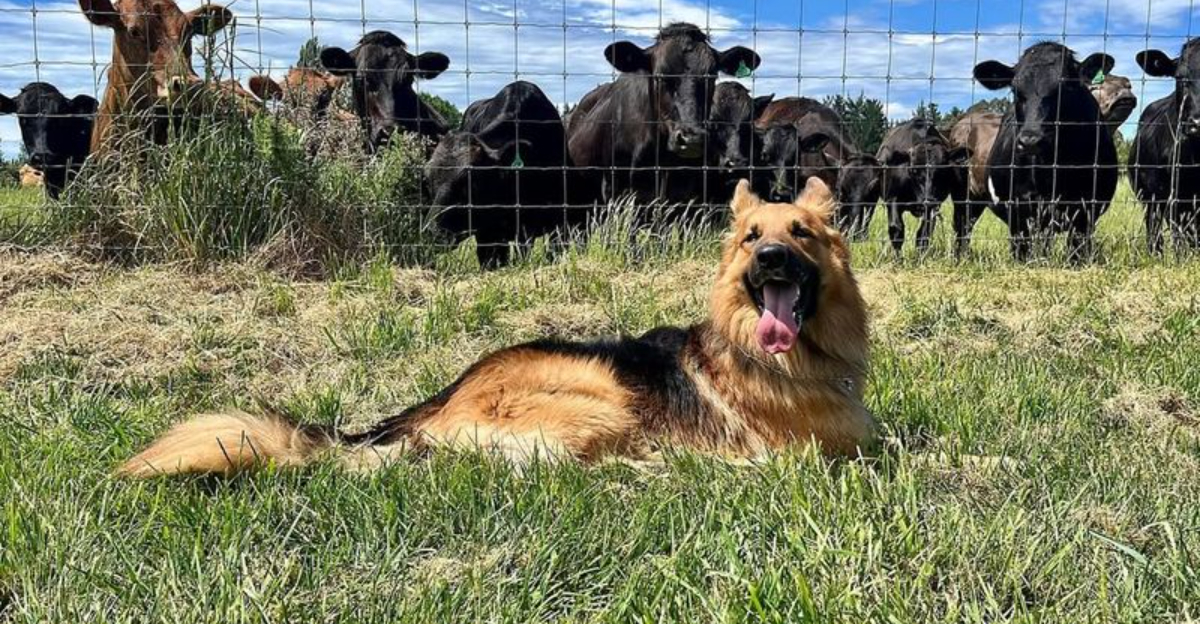
German Shepherds, one of the most recognizable breeds in the world, are known for their intelligence, loyalty, and versatility. This breed has captivated dog lovers across the globe with its unique traits and characteristics.
From their origins to their roles in society, German Shepherds have left a significant mark wherever they go. Each fact reveals a different facet of their incredible nature, proving just why they are such beloved companions.
1. Origin And History
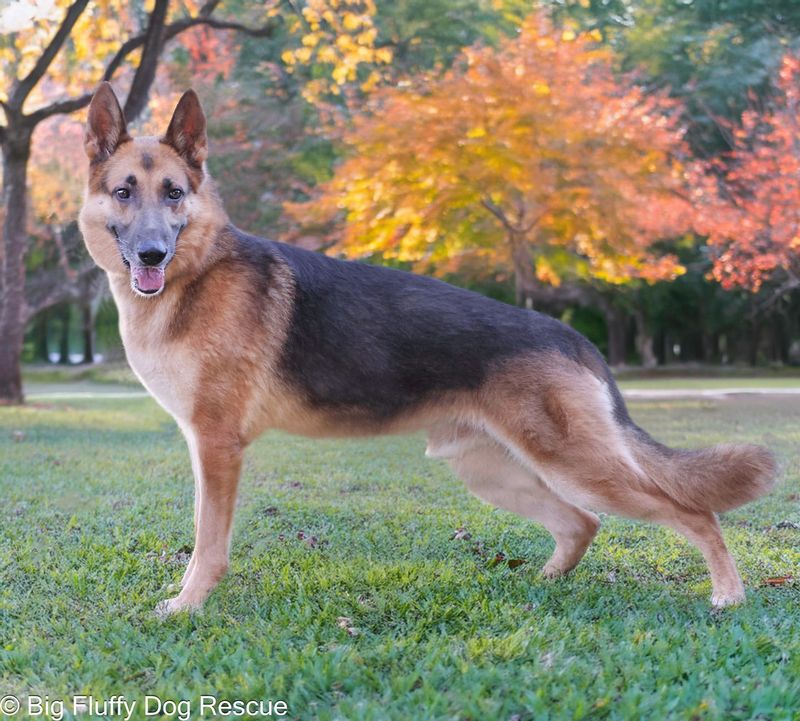
The German Shepherd was first developed in Germany in the late 19th century by Max von Stephanitz, who aimed to create a versatile working dog. Originally bred to herd sheep, their intelligence and natural working instincts quickly became apparent.
Over time, they were used in various roles, from police dogs to military service, showcasing their adaptability and hard-working nature.
Today, the German Shepherd is one of the most popular and beloved breeds worldwide.
2. Instinctive Herding Abilities
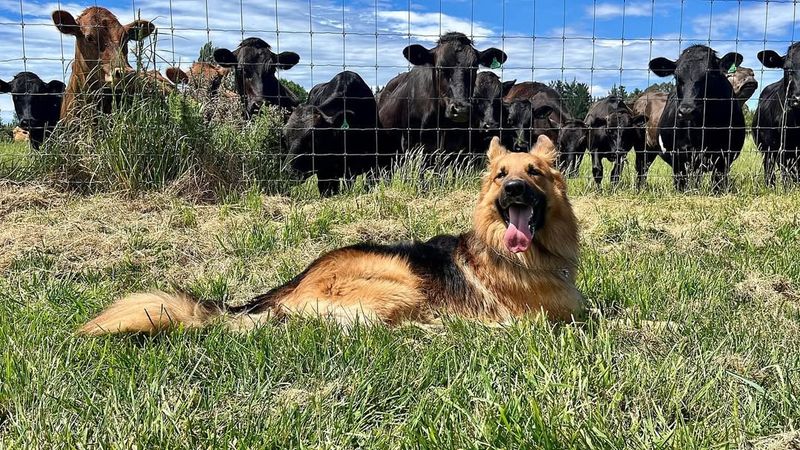
Although originally bred to herd sheep, the German Shepherd retains strong herding instincts, even in a modern household. This breed has a natural ability to keep things organized and move objects or people where they need to be.
Whether it’s nudging a family member to the right spot or managing a group of other pets, German Shepherds can often be seen displaying herding behaviors.
Their instinctive drive to herd can be channeled into various activities like agility training or herding trials, making them versatile working dogs.
3. Sensitivity To Emotions

German Shepherds are incredibly attuned to their owners’ emotions, making them especially intuitive companions. Their sensitivity allows them to sense when their owner is feeling sad, anxious, or stressed, and they often react by staying close and offering comfort.
This emotional awareness makes them not only excellent service dogs but also compassionate companions for families. Their ability to empathize with human emotions adds a deeper layer to the bond they share with their owners, proving just how connected these dogs can be to their humans.
4. Intelligence And Trainability
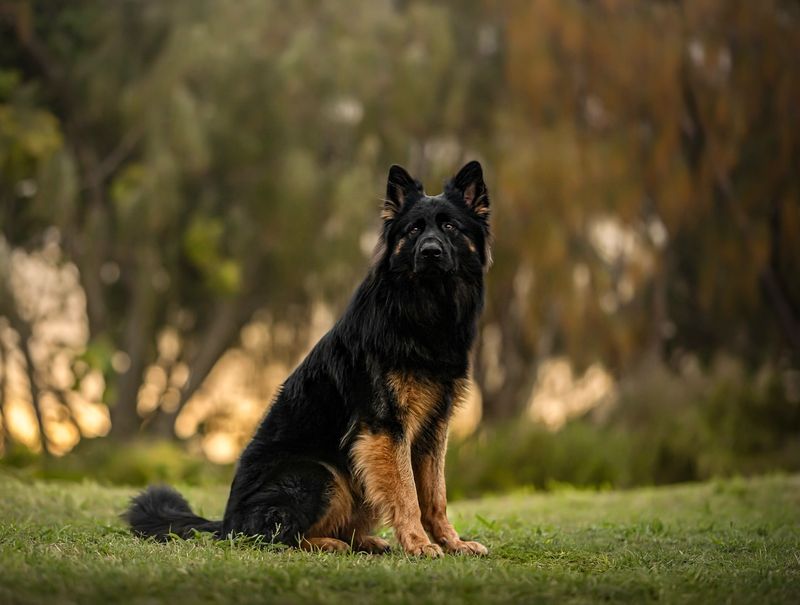
One of the defining traits of the German Shepherd is its exceptional intelligence. This breed consistently ranks among the smartest dogs, capable of learning complex commands and tasks quickly.
Their trainability makes them ideal for various roles, including search and rescue, police work, and service dog tasks.
With the right training, a German Shepherd can master almost anything, making them an incredibly versatile and dependable companion.
5. Courage And Loyalty
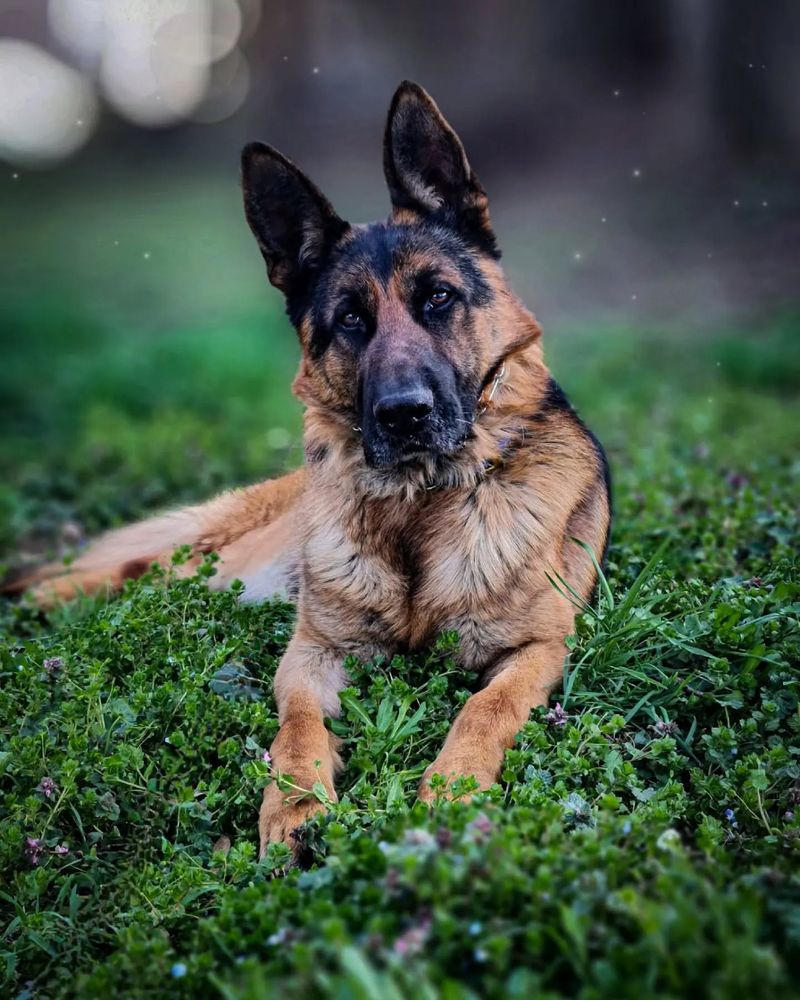
Courage and loyalty are ingrained in the German Shepherd’s nature. They are fearless in the face of danger and will do anything to protect their loved ones.
Whether they’re working as a police or military dog or simply as a family companion, these dogs are steadfast in their dedication to their pack. Their protective instincts, combined with their loyalty, make them incredibly reliable and courageous companions.
6. Physical Characteristics

The German Shepherd is a striking dog with a well-proportioned body that exudes strength and agility. They have a medium-to-large build, with strong muscles, a straight back, and a bushy tail. Their sharp eyes and alert expression reflect their intelligent and attentive nature.
Their distinctive coat—usually a mix of tan, black, and sometimes sable—adds to their commanding presence. German Shepherds are built to perform, with their physical features designed for endurance and work.
7. Health And Longevity
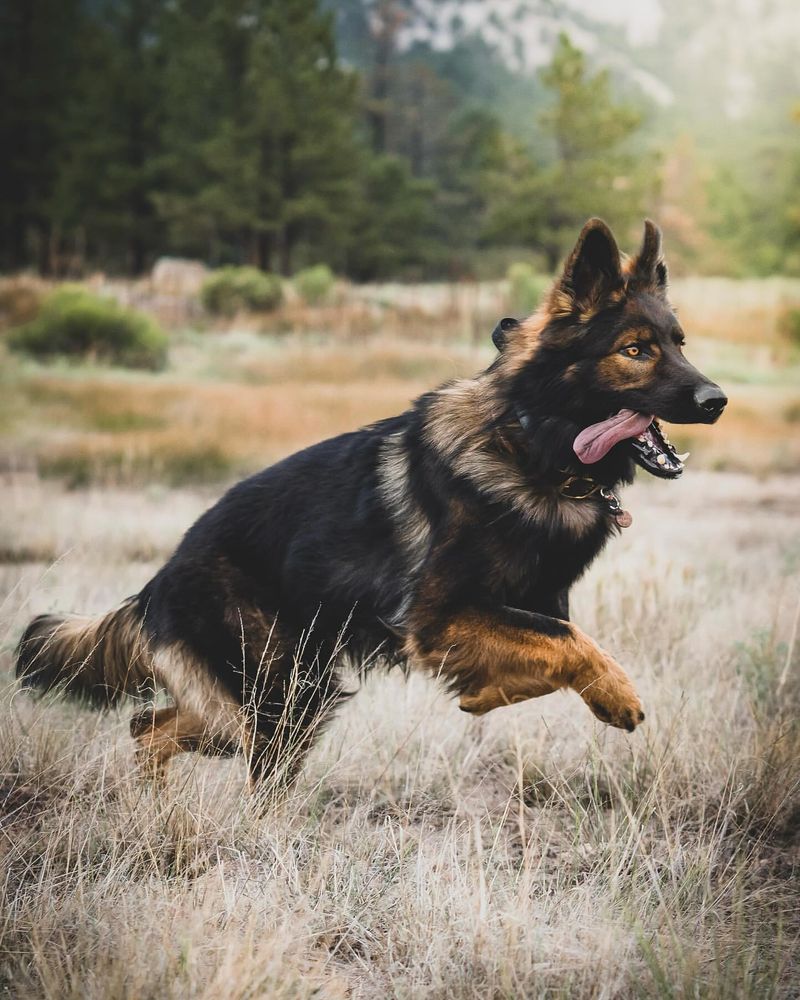
German Shepherds typically live between 9 to 13 years, and their health largely depends on genetics and care.
While they are generally healthy dogs, they can be prone to certain health issues, such as hip and elbow dysplasia, and digestive problems.
Regular check-ups, a balanced diet, and proper exercise are key to ensuring they live a long and happy life. With the right care, these dogs can remain active and healthy for many years.
8. Working Roles
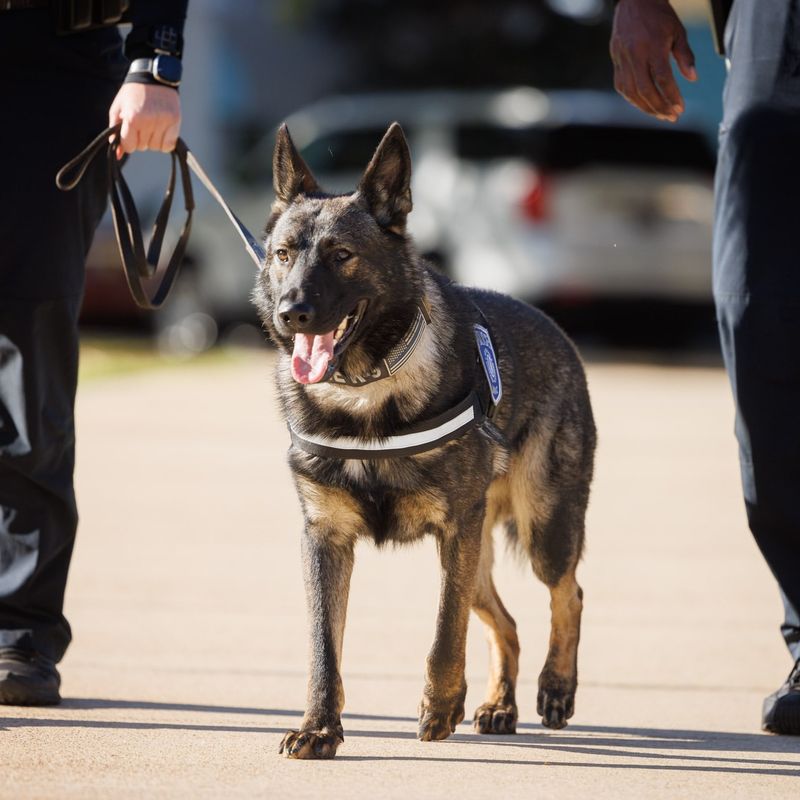
The German Shepherd is one of the most versatile working dogs in the world. From serving as police and military dogs to working as search-and-rescue heroes, this breed excels in almost any task it is given.
Their keen senses, physical strength, and intelligence make them perfect for roles that require precision and dedication.
German Shepherds are also highly trainable, which makes them ideal for a variety of specialized tasks, including guide dogs, detection dogs, and even therapy animals.
9. Exercise Needs
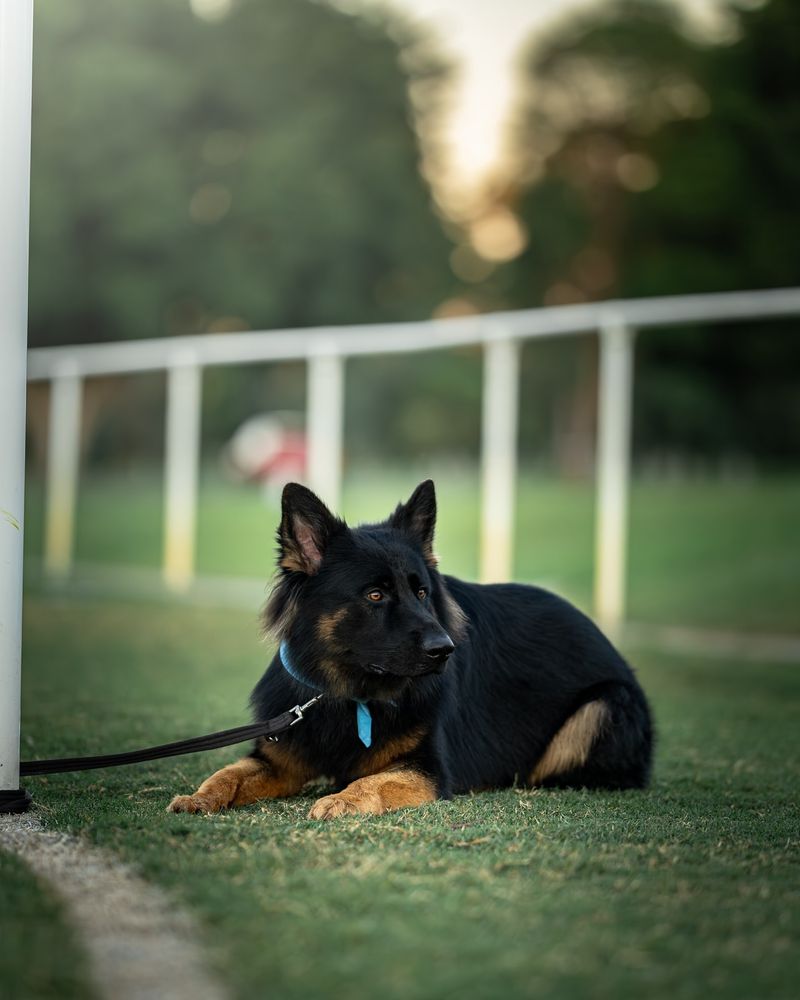
German Shepherds are high-energy dogs that require regular exercise to stay healthy and happy. They thrive in active environments where they can run, play, and work. Daily walks, jogs, and play sessions are essential to keep them mentally and physically stimulated.
Without proper exercise, they can become bored, which may lead to behavioral issues. These dogs love to engage in activities like agility training, fetch, and obedience exercises, making them excellent pets for active owners.
10. Socialization And Behavior

German Shepherds are known for their excellent socialization skills, especially when exposed to different people, animals, and environments early in life.
They tend to be confident, friendly, and protective but can be reserved with strangers. Early socialization helps them become well-rounded, polite companions who are adaptable to various situations.
While they are loyal to their family, proper training ensures they behave appropriately in social settings.
11. Dietary Requirements
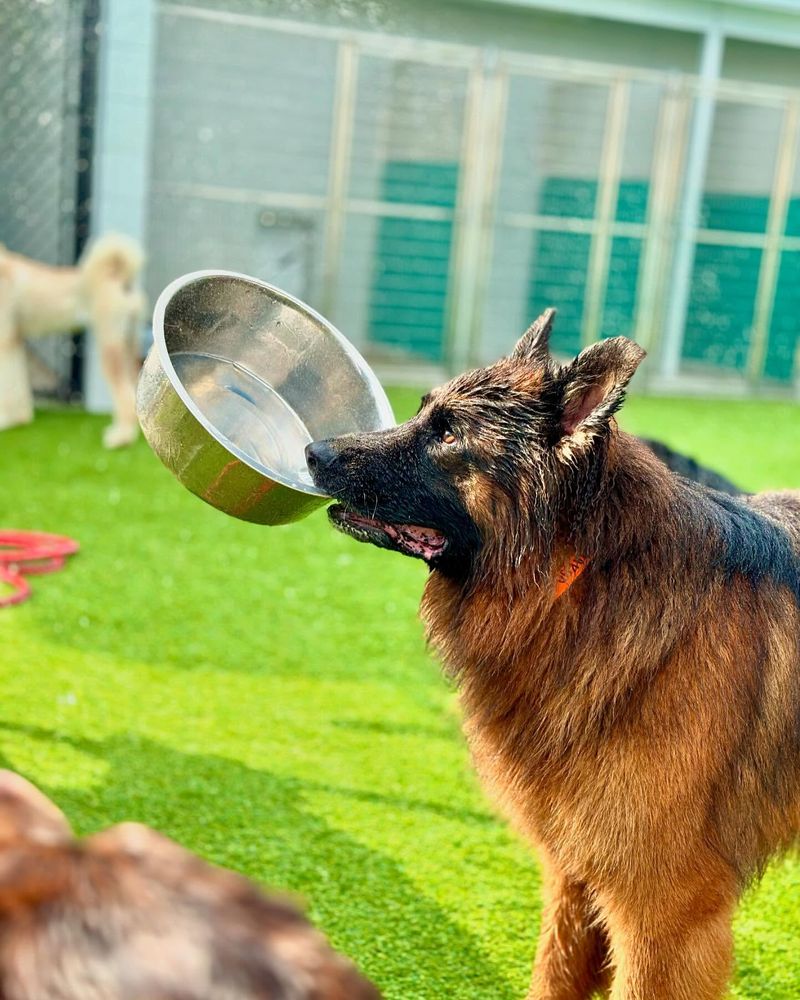
The German Shepherd has specific dietary needs due to their active lifestyle and large size. A high-quality, balanced diet is essential to support their energy levels, muscle growth, and overall health.
Protein-rich foods are vital to maintaining their muscular build, while fats provide the energy they need for exercise. It’s also important to monitor their weight, as they can be prone to obesity if not fed the right amount of food.
Regular meals with appropriate portions, combined with a well-balanced diet, will help them live a long and healthy life.
12. Unique Coat Colors
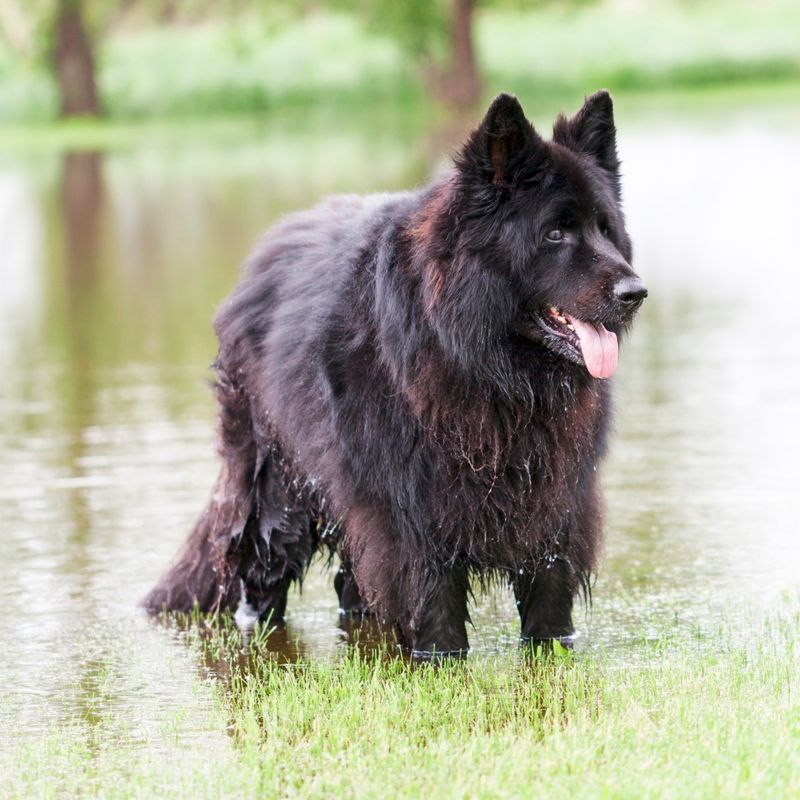
While the traditional German Shepherd coat is tan and black, these dogs can come in a variety of coat colors, including sable, bi-color, and even pure black.
The variety of colors adds to the breed’s striking appearance, but no matter the color, their dense double coat is always thick and weather-resistant.
The coat requires regular grooming to prevent mats and tangles, but it’s also part of their signature look, providing protection against the elements.
13. Shedding And Grooming

German Shepherds are moderate to heavy shedders, especially during seasonal changes. Their dense undercoat and longer outer coat require regular brushing—at least once or twice a week—to keep it healthy and reduce shedding.
During shedding seasons, they may need more frequent grooming. Regular grooming not only helps manage shedding but also keeps their coat clean and shiny, while providing an opportunity to check for any skin issues or parasites.
14. Guarding And Protection Instincts
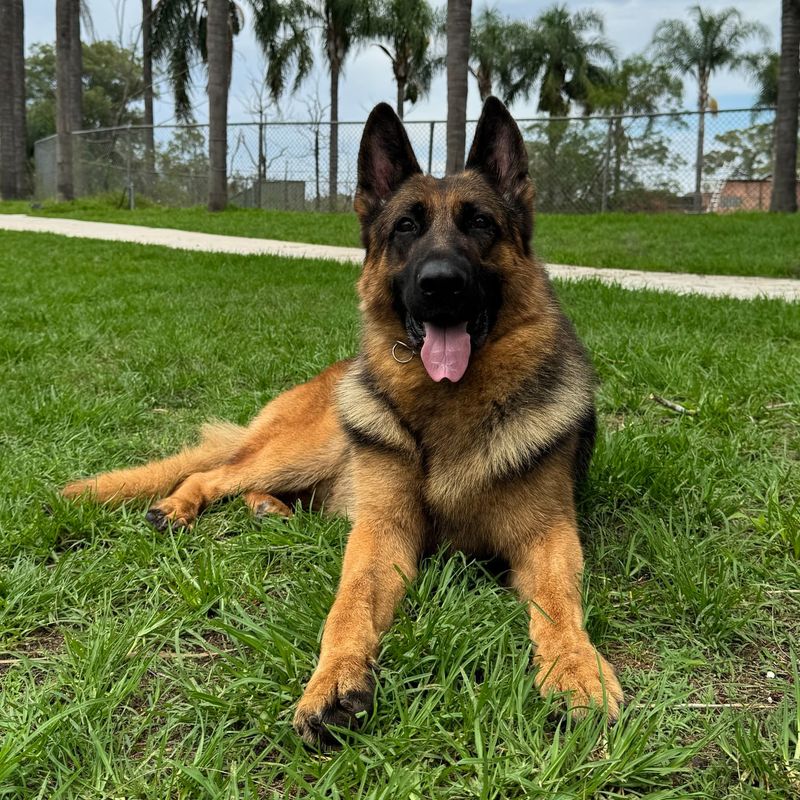
One of the most well-known traits of the German Shepherd is its natural guarding and protection instincts. These dogs are incredibly alert and protective of their family and territory.
Whether as a police dog, a guard dog, or just a family pet, their instinct to protect is always present. They are highly tuned to sensing threats and will act decisively to ensure the safety of their loved ones.
This natural protective drive, when harnessed properly, makes them excellent guard dogs.
15. Compatibility With Families

The German Shepherd is one of the best family dogs, thanks to its loyalty, intelligence, and trainability. They are affectionate and love spending time with their family, often forming strong bonds with their human companions.
They are patient and gentle with children, though their size and energy levels should be considered when around younger kids. With proper training and socialization, they fit seamlessly into family life, providing both companionship and protection.
16. Therapy And Emotional Support Roles
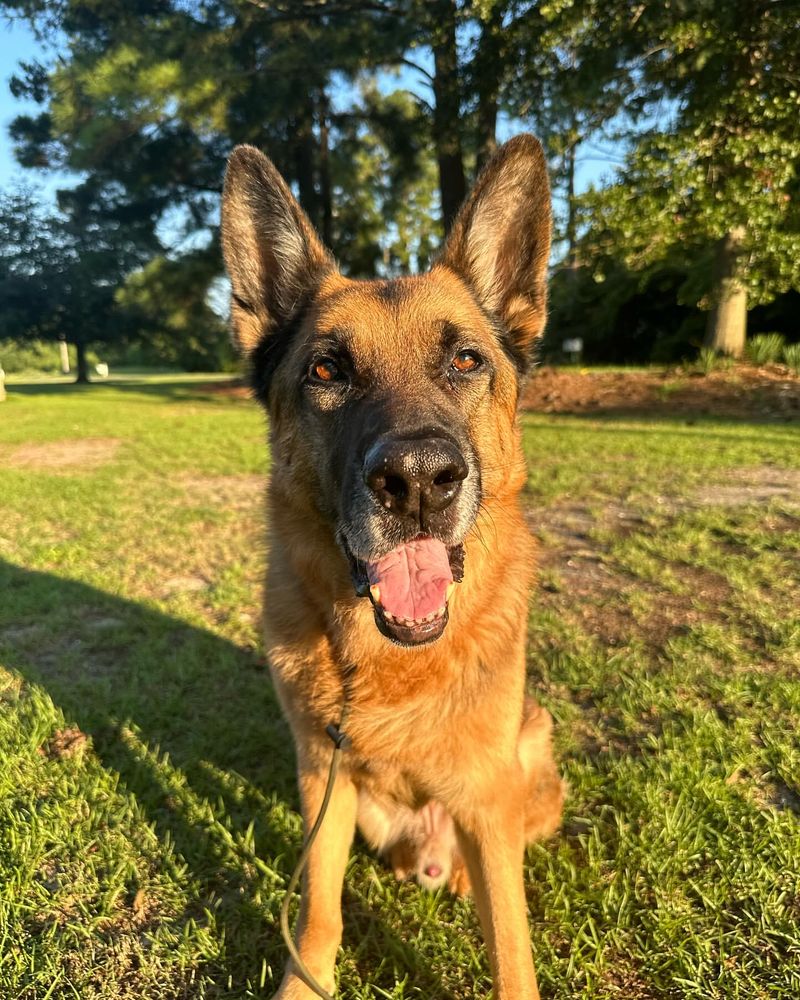
The German Shepherd is not only a working dog but also excels in therapy and emotional support roles. Their intelligence and calm demeanor make them excellent companions for individuals who need emotional support.
They are often used as therapy dogs for those with physical or mental health challenges, offering comfort and security.
Their empathetic nature allows them to sense emotional distress and offer solace, making them ideal for people in need of a reliable, loving companion.






